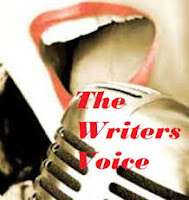It wasn't my first novel. Wasn't even my second. I'd written some silly stuff in high school, and had filled up plenty of notebooks with short stories and bad poetry. But on July 31, 1996, during the summer before I started college, my friends were reading me perverted X-Men fanfiction on the Internet and howling with laughter, unaware that they were inspiring me to go write something myself.
If you're wondering what that has to do with fanfiction, well, I was feeling grumpy about how people were taking existing characters and making them do things they wouldn't actually do, and found myself thinking they should just write characters who would do those things if that's what they wanted to write. For the record, I do think it's fine to write fanfiction, for a lot of reasons, and I will probably write about that someday soon. However, at that point in my life I didn't see the positives as clearly, and it irritated me that people would take characters they apparently loved and change them by grafting desires and opinions onto them that they don't hold in canon. I figured hey, some of these people could probably do a great job inventing their own characters if they wanted to. So, after listening to that, I decided I was in the mood to write some very original characters. Just to see what would happen.
On July 31, 1996, I started writing about a character named Ivy. (That was also my nickname, so it was sort of my intentional attempt to put a piece of me in the book, but she showed me pretty quickly that she was nothing like me.) Ivy was a teenager with a hot temper, no patience, a highly developed sense of mischief, and a rather compelling superpower: her telekinetic powers let her fly and beat up anyone she didn't like, but she wasn't a superhero. She just liked running around doing stuff and living life. And I wrote about her doing that.
Her story wasn't anything special, but I thought she was. And even though I struggled with plot (and kind of do, to this day), having the character driving the action through her complex emotions and attempts at personal growth was a new experience for me. I wanted to see what would happen to her, and I wanted to keep experiencing the world through her eyes. This novel was my first experience with desperately pounding out page after page like something was chasing me. I finished it in two weeks. It was handwritten, but after I typed it into the computer later, I ended up with a 155,000-word novel.
I continued to write novels and eventually I branched out into something that wasn't the Ivy books. The first thing that came out was the original first draft of Bad Fairy. The difference in quality between that one and the first Ivy book was depressing--meaning I could no longer look at my older work and maintain any delusion that it was publishable. And it wasn't just a matter of rewriting; the story just wasn't salvageable. The characters were so important to me, but their story wasn't a mainstream thing. I decided to develop it as a webcomic, but I've talked about that here before. Mostly I just did it because I didn't want to "lose touch" with these people, but I didn't want to warp them by trying to press them into a mainstream mold. You can be pretty unconventional in webcomics. So if I want to have walls of text and plots that meander, I can do that there. And I do.
 But on July 31, 1996, something happened to my writing, to my process, to my experience as a writer. I think that was the first day I truly understood how and why I would be doing this for the rest of my life. It wasn't a sort of fanciful idea of "one day I'll be an author" anymore. Even though I wasn't turning out publishable work, I'd gotten serious. I'd switched on somehow. I'd established that I could do it, and that I loved doing it.
But on July 31, 1996, something happened to my writing, to my process, to my experience as a writer. I think that was the first day I truly understood how and why I would be doing this for the rest of my life. It wasn't a sort of fanciful idea of "one day I'll be an author" anymore. Even though I wasn't turning out publishable work, I'd gotten serious. I'd switched on somehow. I'd established that I could do it, and that I loved doing it.Those books were my life. Every book I've written since then has been the same. And that's why, on July 31 every year, I do something to celebrate being a writer. I jokingly refer to it as Ivy's birthday--and it's actually her birthday in the canon of the story, because why not?--but it's really sort of my birthday too. It's my writer birthday. So every year on this day, I tell this story somewhere, to someone, and I do something to remind me of what that metaphorical birth was like. I'll re-read favorite parts of the stories, or write something new, or doodle characters, or make myself a cake. I'll spend some time with my past and think about my future.
And I'll think about how lucky I am to be one of the few people who found what she wanted to do with her life, so early and so confidently, and how I've never doubted for a second that I'm where I'm supposed to be, doing what I'm supposed to be doing.
It only gets better from here. Maybe in the future some other writing milestone will join this one and maybe even eclipse its significance, but I'll never forget where I came from, and why it was so important for where I'm going.



































